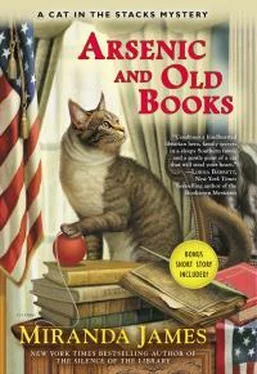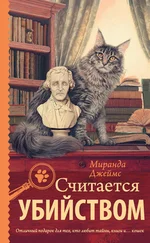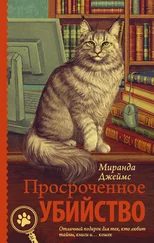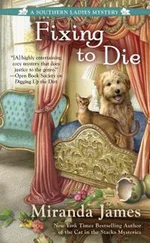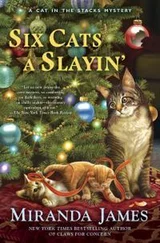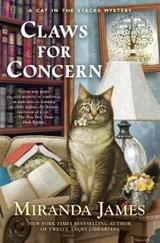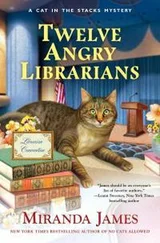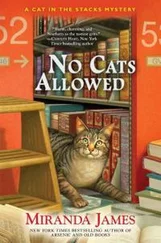“What kind of family documents do you have?” I asked.
The question obviously surprised him. “What do you mean? Are you talking about birth certificates?”
“No, because I don’t think they gave them out in the 1860s. I’ll have to look that up,” I said. “I’m talking about a marriage license, or some proof that Franklin and Celeste married. It was illegal for a black woman—and Celeste would have been considered black even though she was allegedly of mixed race—to marry a white man, and vice versa.”
“You think if I have a copy of a license showing they were legally married, that would prove she was white?” Jasper shrugged. “Look, it doesn’t matter to me whether she was or she wasn’t a slave in the long run. By all accounts she and Franklin had a happy marriage even though they were dirt poor all their life together. I’m not ashamed of my background, but I am curious why nobody in my family, including my great-aunt who’s ninety-eight and still sharp, knows anything about this. I asked Aunt Addie this morning, and she laughed. Celeste died when Aunt Addie was fifteen.”
“The fact that your great-aunt knew Celeste doesn’t rule out the possibility. If Celeste had been a slave, she and her husband would have taken great pains to keep it from the rest of the family.”
“Yeah, I get that,” Jasper said. “But how come no one ever came up to Aunt Addie or my grandfather and said anything about their grandmother being a slave once upon a time? If Celeste had been a slave, people in town would have known. You couldn’t hide something like that.”
I couldn’t argue with his logic, and I told him so. “That’s been troubling me, too. For the moment, let’s assume that it’s true that she was a slave. If that became public knowledge now, would it have a bad effect on your campaign?”
“I might lose some votes from narrow-minded people.” He sounded tired all of a sudden. “Look, people come up with all kind of nutty reasons not to vote for a candidate. They think he has a squint and looks like a crook, or the other candidate is more attractive. If it does turn out to be true, who knows? I could actually pick up support from black voters in this district.”
I couldn’t tell whether he really believed what he had told me, about not being all that concerned over Celeste’s racial heritage, or whether, in typical politician fashion, he was saying what he thought was most expedient in the situation. I hoped it was the former.
Singletary stood. “I’ve taken up enough of your time, and I’ve got to get on the road. More campaign stops. I’d also better do what I can to find out if Beck Long and his handlers plan to make this stuff public.”
We shook hands again, and out he went. I sat again and stared at the diaries on my desk. On a sudden whim, I got up and went to the storage room next door. I found the fifth volume and brought it back to my desk. I opened it to a random page beside one of the other volumes and began to compare them.
After fifteen minutes I gave up. The handwriting looked pretty much the same to me. The fifth volume had the same binding, the same paper, from everything I could see. Still . . .
I hesitated for a moment, then picked up the phone. I punched in Stewart Delacorte’s number on campus and hoped he would answer.
THIRTY-ONE
Stewart answered after several rings, and I identified myself.
“Hi, Charlie, how are you?” Stewart asked.
“Doing fine. I’m working on a new project,” I said. “I was wondering if you could help me with something.”
“Sure,” Stewart said. “What do you need?”
“It might be better if I explained in person,” I said. “Can I come over to your office sometime today?”
Stewart chuckled. “I’m not in the office at the moment. I have my office phone forwarded to my cell phone. I’m home, actually. How about I come to your office in about twenty minutes?”
“That’s fine,” I said, “if you’re sure you have time.”
“I do,” Stewart replied. “See you in twenty.”
I hoped Stewart might be able to answer the questions I now had about the authenticity of the fifth volume of Rachel’s diary. I suspected that it was a fake, and if Stewart could give me some kind of basic evidence of that possibility, I would turn the book over to Kanesha and tell her it needed to be thoroughly tested.
If the diary proved to be a fake, then the question was, who did it?
The most obvious answer was the mayor herself, Lucinda Beckwith Long.
Her motive? To embarrass Jasper Singletary and cost him votes by spreading the news that he was a descendant of a slave who once was the property of the Long family.
The arrogance that lay behind such a plan stunned me. Was the Long family so desperate to put Beck in office that they would stoop to something so preposterous? I suspected they were. I also found repugnant the notion that Jasper Singletary was less worthy —I had to struggle for a word—because of the alleged connection to a slave woman. Did Mrs. Long really believe that was such a terrible thing, enough to turn voters away from Jasper?
The man himself didn’t seem that bothered by it, and I had to credit him for that attitude if it was, indeed, genuine.
How did the murder of Marie Steverton connect to this? I wondered whether she had known about the faked diary. Allegedly faked diary, I reminded myself. Had the mayor run Marie down in cold blood to keep her from giving away the scheme? That was possible, I supposed, but it didn’t seem likely somehow.
I kept running these and other questions through my brain while I waited for Stewart to arrive. The frustration from not being able to find answers was building, and I knew before long I would have a headache from the tension.
Stewart’s arrival came as a welcome interruption. “Hi, Charlie,” he said from the doorway. “Here I am, and I have a companion with me.”
Diesel trotted into the room ahead of Stewart and came around the desk to sit by me. He looked up at me and meowed.
“Your companion has been naughty,” I said. “He sneaked out of here while I was busy and went down to see Melba.”
“Oh, Diesel, you are a bad boy.” Stewart chuckled as he made himself comfortable in the chair across from me.
I looked down at the cat and frowned. “You shouldn’t do things like that.”
Diesel meowed and placed a large paw on my leg. For him, this probably constituted an apology. I patted his head. Reassured, he climbed into the window behind me and stretched out.
I turned to Stewart, who looked as neatly groomed and fresh as always. I wished I knew how he managed to stay that way, even in the heat of a Mississippi summer.
“Thanks for coming by,” I said. I waved a hand to indicate the volumes of Rachel Long’s diary on my desk. “I need your help with these.”
Stewart quirked one eyebrow. “Are they old chemistry books? Otherwise, I’m not sure I’d be of much help.”
“They’re not,” I said, “but it’s your expertise in chemistry that I need.” I tapped the suspect volume lightly. “I think this one is a fake, and I’m hoping you can tell me if I’m right.”
“What are they?” Stewart asked.
“I’m getting ahead of myself,” I said. “These are diaries written by Rachel Afton Long around the time of the Civil War.”
“Long?” Stewart said. “As in our esteemed mayor’s husband’s family?”
I nodded. “Yes. Mrs. Long brought four of the diaries to me on Monday. She found them in a trunk in the attic and wanted them added to the Long collection here in the archive. Later she brought me a fifth one.” I held it up. “She said she found it in the same trunk, but hidden in a false bottom.”
Читать дальше
